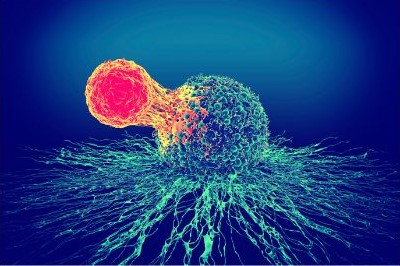Living Drugs for Cancer Treatment. Learn how ‘living drugs’ are reshaping the future of cancer treatment.
An incredible new development in cancer treatment, like something out of a science fiction novel, but it’s real and could change everything we know about treating cancer. Let’s dive into it and the science behind how it works and why it’s so exciting.
So, here’s the deal: There’s a new approach to cancer therapy that scientists are calling “living drugs.” These are essentially immune cells that have been engineered and supercharged to fight cancer. It’s a form of immunotherapy, but it’s much more personalized and powerful than traditional treatments like chemotherapy or radiation.
Okay, let me break it down. Normally, our immune system is pretty good at spotting and attacking things like viruses or bacteria, right? But cancer cells are sneaky—they can often evade detection. That’s where these “living drugs” come in. What researchers are doing is taking T-cells—a type of white blood cell that plays a key role in fighting off infections and diseases—out of a patient’s body, genetically modifying them to recognize and attack cancer cells, and then putting them back into the patient.
It’s kind of like creating an army of super-soldiers, designed specifically to target the cancer. These re-engineered cells are now better at spotting cancer cells that the body’s normal immune system might have missed. Some of the coolest progress is happening with a therapy called CAR-T cell therapy (which stands for Chimeric Antigen Receptor T-cell therapy). In this method, T-cells are modified to express a receptor that binds to a specific protein on cancer cells, and then they’re infused back into the patient. Once they’re in the body, these “living drugs” go straight for the cancer cells like heat-seeking missiles.
What’s really exciting about this is the personalized nature of the treatment. Every cancer is different, and with these living drugs, the treatment can be tailored to the specific cancer someone has. It’s not a one-size-fits-all approach like chemotherapy. And for some patients, this therapy has been a total game-changer—it has led to remission in certain types of blood cancers, like leukemia and lymphoma, where traditional treatments weren’t working.
Now, the science is still in its early stages for some types of cancers, but the potential is huge. This could mean fewer side effects compared to things like chemotherapy, which hits the whole body and can cause severe damage to healthy cells. With immunotherapy, because the focus is on revving up the body’s own immune system, the treatment can be more targeted and have less impact on healthy tissue.
But, of course, it’s not without challenges. The treatment can be expensive and isn’t available for every type of cancer just yet. Plus, not all patients respond to immunotherapy—some may experience side effects or complications. But the fact that we’re seeing patients who had no other options go into remission or have their cancers controlled for years—that’s really something to get excited about.
What makes it so revolutionary, in my opinion, is the idea that cancer treatment could move away from just killing everything in sight (like with chemo) and instead focus on helping the body’s immune system fight back more intelligently and efficiently. It’s a much more precise way to attack cancer.
So, yeah, it’s still early, and there’s a lot of research to be done, but the idea of living drugs and personalized immune therapies is like a whole new frontier in cancer treatment. We might be on the cusp of seeing cancer treated in a way we never thought possible.
Crazy, right? It’s kind of mind-blowing to think about how far science has come.
For more information about “the evolution of the living drug”, click on this study

More topics on Cancer? Click here







